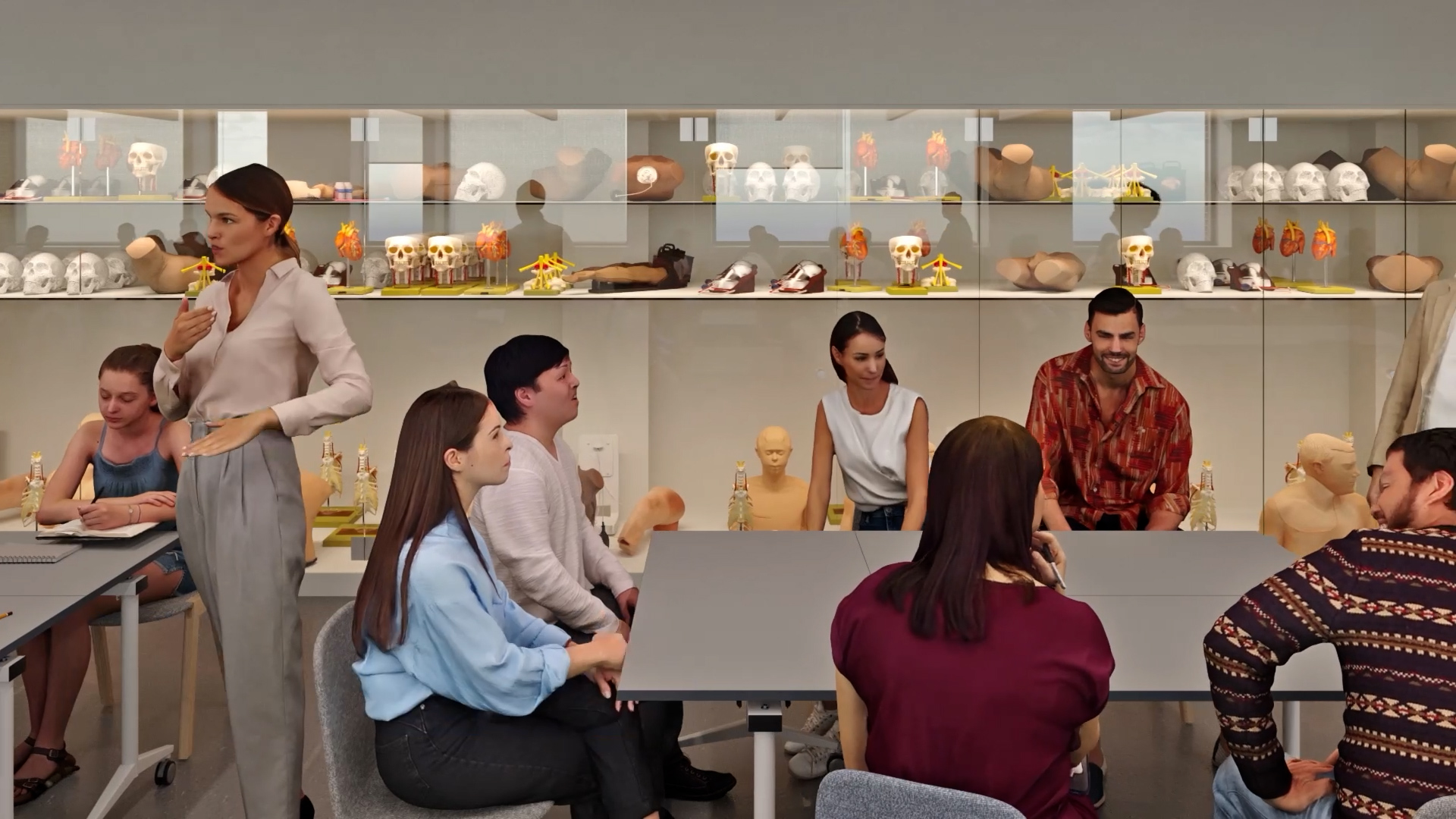All candidates are considered on an individual basis and we accept a broad range of qualifications. The entrance requirements listed apply to 2026 entry.
A levels
AAB / A*AC / A*BB
Required subjects
A levels must include biology or physical education, or an acceptable biological science (for example human biology).
A pass is required in science practical tests, where these are assessed separately.
Excluded subjects
Citizenship studies, critical thinking, general studies, global perspectives.
GCSEs
Five GCSEs at grade 9-5 (A*-B), which include maths, English and biology or double science (or equivalent level 2 qualification). We do not accept Functional Skills English and Functional Skills Maths.
We will consider applicants who may have achieved a grade 4 in one of the listed GCSE subjects but have a total of five GCSEs at grade 5 or above.
Please note: GCSE resits are accepted. You must have achieved the GCSEs at the point of application and not at the point of entry.
IB score
32 points overall or 6,6,5 in three HL certificates
IB requirements
HL 5 in biology
RQF BTEC Nationals
- RQF BTEC National Extended Diploma in Sports and Exercise Science, Applied sciences (Biomedical science Pathway) - DDD
- RQF BTEC National Extended Diploma and A level biology or PE - DDD plus B
- RQF BTEC National Diploma in Sports and Exercise Science and A level - DD plus A
- RQF BTEC National Diploma and A level in biology or PE - DD plus A
- RQF BTEC National Extended Certificate in Applied Human Biology (including Functional Physiology or Diseases, Disorders Treatments and Therapies unit) or Medical Science and two A levels - D plus AB
- RQF BTEC National Extended Certificate and two A levels (including biology or PE) - D plus AB
We can accept a mix of various BTEC qualifications.
Access to HE Diploma
30 Level 3 credits at Distinction and 15 Level 3 credits at Merit including Distinction in 24 biology/physiology units (please contact us for advice on acceptable units).
Previous degree
2:1 in a relevant subject (if in a non-relevant subject, contact us for advice).
If you don't meet the requirements for this course and you are a UK student, you might want to consider our one-year Health Sciences with Foundation course.
At the University of Nottingham, we have a valuable community of mature students and we appreciate their contribution to the wider student population. You can find lots of useful information on the mature students webpage.
Interview
An interview is mandatory, in line with our professional and regulatory body requirements.
All offers are also subject to a successful interview and satisfactory health screening, and disclosure and barring service (DBS) clearance. Visit our application process page to find out more about personal statements, work experience and interview - how to prepare and what to expect.
Work experience
Physiotherapy is a vocational degree and applicants need to be enthusiastic about the profession and sure in their own minds that they really want to be a physiotherapist.
We encourage you to undertake physiotherapy work experience where possible within the NHS hospital and community settings before applying to strengthen your application. You should also consider work experience or extracurricular activities to boost your application. These can include experience in the caring environment or other environments, such as working with vulnerable people, in a café or shop or as a lifeguard. You need to identify any skills that you have gained from this experience and reflect these in your personal statement and interview.
Health and criminal records screening
In accordance with Professional and Regulatory Body requirements, all applicants are subject to health screening by Occupational Health, and Disclosure and Barring Service (DBS) checks before they can commence the course.
More information can be found on the School of Health Sciences Occupation Health and DBS page.
Minimum age requirement
We do not consider your application if you will be under 17 years and 9 months on the 1 September of the year you start your course.
Elite athletes
We can make a contextual offer if you're an athlete competing at a high level. We recommend that you complete the expression of interest form as soon as possible so that your elite athlete status can be confirmed prior to an offer being made. More information and how to apply can be found on the UoN Sport pages.
Part-time working alongside university studies
As a student on a full-time professional training course, it is expected that your primary focus would be your full-time university studies. If you're considering part-time paid employment alongside your university studies it is advised that you discuss your position with your personal tutor before committing.
Previous applicants
Applicants who have been previously unsuccessful at interview will be able to have a second interview attempt the following year. If unsuccessful again, applicants must wait three years before being able to reapply to physiotherapy.





